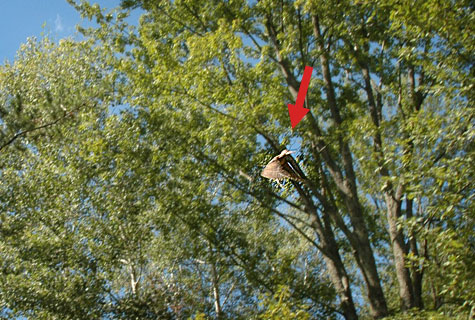Autumn Olives And Dogwood Berries
The day began as a crisp and dewy precursor to the eminent transition from summer to fall. We struggled through the thick undergrowth, dew rolling off our waxed pants like raindrops on windows. Mosquitoes floated through bars of sunlight falling between old growth aspen leaves, finding our unprotected ears and faces. A cool wind swirled unpredictably. The earth was soft here, almost boggy; the underbrush too thick. The dogs forged ahead, noses up, bird scent everywhere, and nowhere. There would be many false points in these conditions today.
It’s early September, and Michigan’s Grouse and Woodcock season openers are only days away. Our friend and dog trainer Justin generously invited me to bring Elsa and Stuka (and Kay and her camera) for a day of training with him and his six students—English Setters, Brittany Spaniels, and Pointers of varying ages and skill levels.
Justin pushed on, as the tangled thicket gave way to young Aspens and Birches. Dead leaves blanketed the forest floor, and the walking became considerably easier. “Pay attention to the dirt under your boots,” he told us. “This is better ground. Soft enough for the birds to use their long bills to find their main food source of grubs and worms, but not too spongy. Once the ground hardens and the weather turns colder, the Woodcock will head south. But this time of year, there are plenty of birds in these woods.”
“These woods” described a friend’s private land in northwestern Michigan, worlds away from noise, congestion, traffic. It’s peaceful here, and quiet; the loudest sound is that of the wind through the leaves. The air smells fresh. This is game bird country at its best, purposefully cultivated by the owner to restore the too-quickly disappearing habitat of the wild birds once so abundant in the state.
As we worked pairs of dogs through sections of land where Justin had previous encounters with Grouse or Woodcock, he re-acclimated us to the food sources, habitat preferences and characteristics of good cover. These small game birds require somewhat soft soil with a reasonable amount of cover to provide protection from predators, but allow relative ease of movement. They thrive in environments of bush, young Aspen stands, or mature Aspens with ground cover of Hazel or Ironwood. Colorful red Autumn Olives and Dogwood berries, still green but soon ripening to a rich red, supplement the insect protein, and to us seemed far more appealing.
And there were plenty of birds in those woods.
In spite of the dry conditions and unpredictable winds, the dogs succeeded in finding their birds, and we were rewarded with several points and flushes of both Grouse and Woodcock. Stuka paired nicely with Moody, a spry and seasoned 10-year-old English Pointer. Moody’s white, feathery coat was easily visible; Stuka nearly impossible to see against the silvery Aspen trunks. Moody proved her mettle, pinning down several Woodcock in a section of thick brambles. Her bell abruptly fell silent, head up, nose to the wind. With some coaxing, I called Stuka in and whoad him behind Moody, taking advantage of an opportunity for a lesson in backing. Justin moved slowly through the thicket, flushing a Woodcock into an arbitrary trajectory that skimmed just above our heads, his fat orange belly almost close enough to touch. He was under no threat from us today. We were armed only with a camera, which he did not escape.
After a hike back to the trucks for a brief rest and water, this time we approached a thickly forested tract to the north with Elsa and Nelson, a year-old Brittany Spaniel. Nelson darted through the trees, eventually circling a deadfall in an area of mature forest. Elsa fell into a backing point, her expressive, darting eyes the only movement aside from her quivering tail. The three of us flanked the dogs, slowly squeezing the deadfall until the mother bird could no longer remain still. As the sound of her wings faded, one after another after another of her fledglings followed her wake in turn. A covey of eight Ruffled Grouse. We let them be, to reunite later when the scent of dogs and man had receded.









